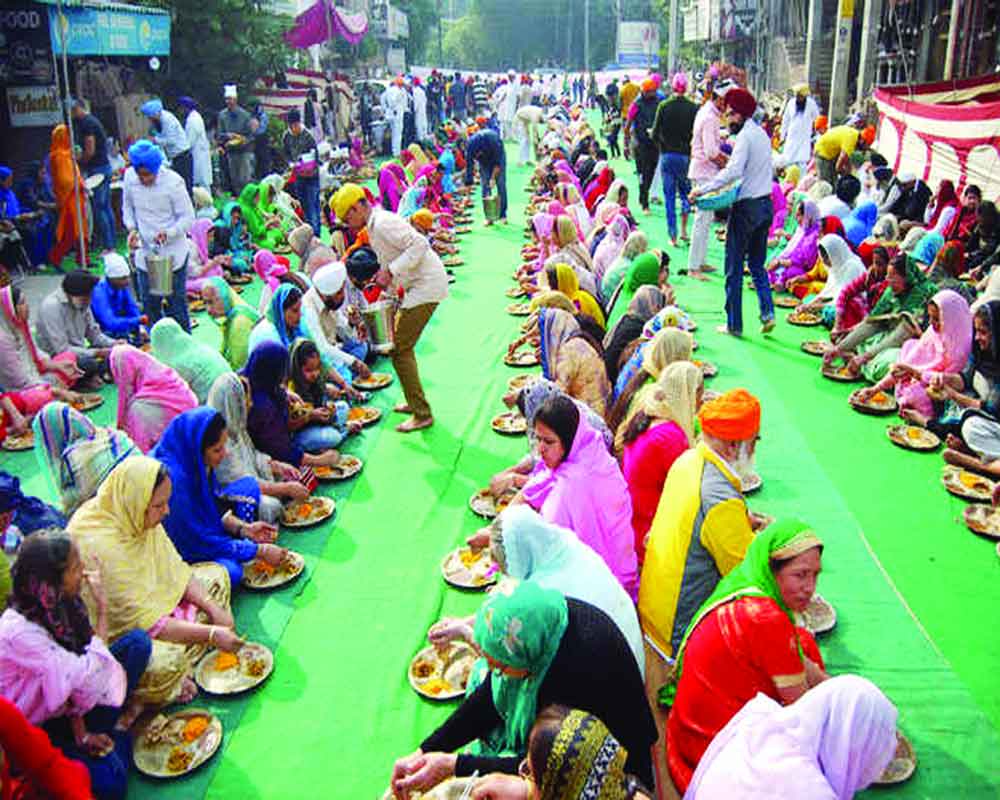A point of interest, and debate, is whether the recent Assembly poll results would persuade the party to recast its governance ideology
Sunday, March 20, saw an interesting debate in the print media. The point of discussion was whether its resounding victory in the recent Assembly elections would induce the BJP to reforge its ideology of governance. The debaters have been anxious to know whether the electoral results were a change of Governments or a change of regime. The BJP’s ideology of Hinduness has traditionally had a connect with the soil of India. In fact, most other political ideologies the world over are ‘-isms’ based on the socio-economic classes they sprung from, rather than on the specific ethos of the countries concerned. It was so with capitalism, which has had its roots in mercantilism. Socialism and then of course communism which followed it, was conceived of by those who believed that religion is the “opium of the masses” and nationalism is an instrument of the rich exploiting class to keep the toiling working class in chains. In complete contrast to all this, the BJP’s ideology and the programmes emanating from it are the closest to India’s own ethos.
The advantage of an ideology that has grown from a country’s soil is that people normally take to it like fish to water. Those who have been influenced by thinking that has originated overseas find it difficult to digest it though. Dr BR Ambedkar (Complete Works, published by the Government of Maharashtra) put this point across lucidly. He was at the time thinking of which faith to convert to since he had decided he would not die as a Hindu. His quest led him to reject Islam and Christianity because, in his words, “they would have a denationalising effect on his people”; those religions have been founded in other countries. In the end, he chose Buddhism because it was born in India. Has he not proved to be a visionary in the decades since he made his choice some 70 years ago?
Welfarism or a welfare State is one of the themes in vogue in the current milieu, and is supposed to be the touchstone on which the worth of political ideologies ought to be judged. Most students of political science would relate the concept to the West, the term having first emerged in the UK during World War II. It has since been used much more broadly to describe systems of social welfare that have developed since the 19th century. The original promise of a welfare State covered every citizen regardless of income. It offered nothing less than cradle-to-grave welfare. That was the great promise dangled before the British electorate in 1945.
But a welfarist society is the traditional concept that has been rooted in India since time immemorial. One need look no farther than the countless langars in our gurudwaras and bhandaras in temples. Apart from feeding the poor, the meals were willingly donated by the rich/well-to-do. It is therefore a voluntary transfer of wealth from the rich to the needy individual. This is unlike the European method of taxing the rich at high rates. Taxing public money for the supposedly noble purpose of spending the proceeds on the poor is a dubious idea, as no effective mechanism for ensuring the delivery of taxed wealth to its intended beneficiaries has been developed.
Regimes and countries that have met with collapse in trying to enforce this system fill textbooks. Late Prime Minister Rajiv Gandhi had once said that out of every `100 allocated for the welfare of the poor, only `15 actually reached them. Prime Minister Narendra Modi is acutely aware of this reality and has been insistent on direct delivery to the intended beneficiaries. Another Indian reality has been the demand for at least one toilet per family. This need was more acute for orthodox Muslim women, who could not expose their faces outside their homes, which would have been inevitable during the daytime. Scholars might reject this point as unnecessary in the context of ideology. We in India question the use of ideology, which does not include every citizen’s comfort as essential. Thousands of pages of Marxist and socialist ideology are useful, but ineffective for a leader to make a promise to his electorate.
One particular allegation has been that the BJP polarises the electorate. Would anybody believe that the party is a club of wastrels who polarise Hindus and Muslims without rhyme or reason? Yogi Adityanath got only nine votes in a particular pocket in his constituency. In other words, his party is not popular among Muslims everywhere. By polarising or doing anything against Muslims, the BJP would lose whatever little support it gets from the community, whether men or women. This would apply equally to Mahadalits, or the most backward, among the Hindus.
A new theory is current that traditional electoral democracy has been vitiated by the ruling party to the extent that it is coming in the way of the all-important constitutional democracy. The problem before us is to research what constitutional democracy is, as distinct from electoral. I can only think of the Greek concept of the three classes, of which only the uppermost mattered. I wonder if I am right.
(The writer is a well-known columnist, an author and a former member of the Rajya Sabha. The views expressed are personal.)


























